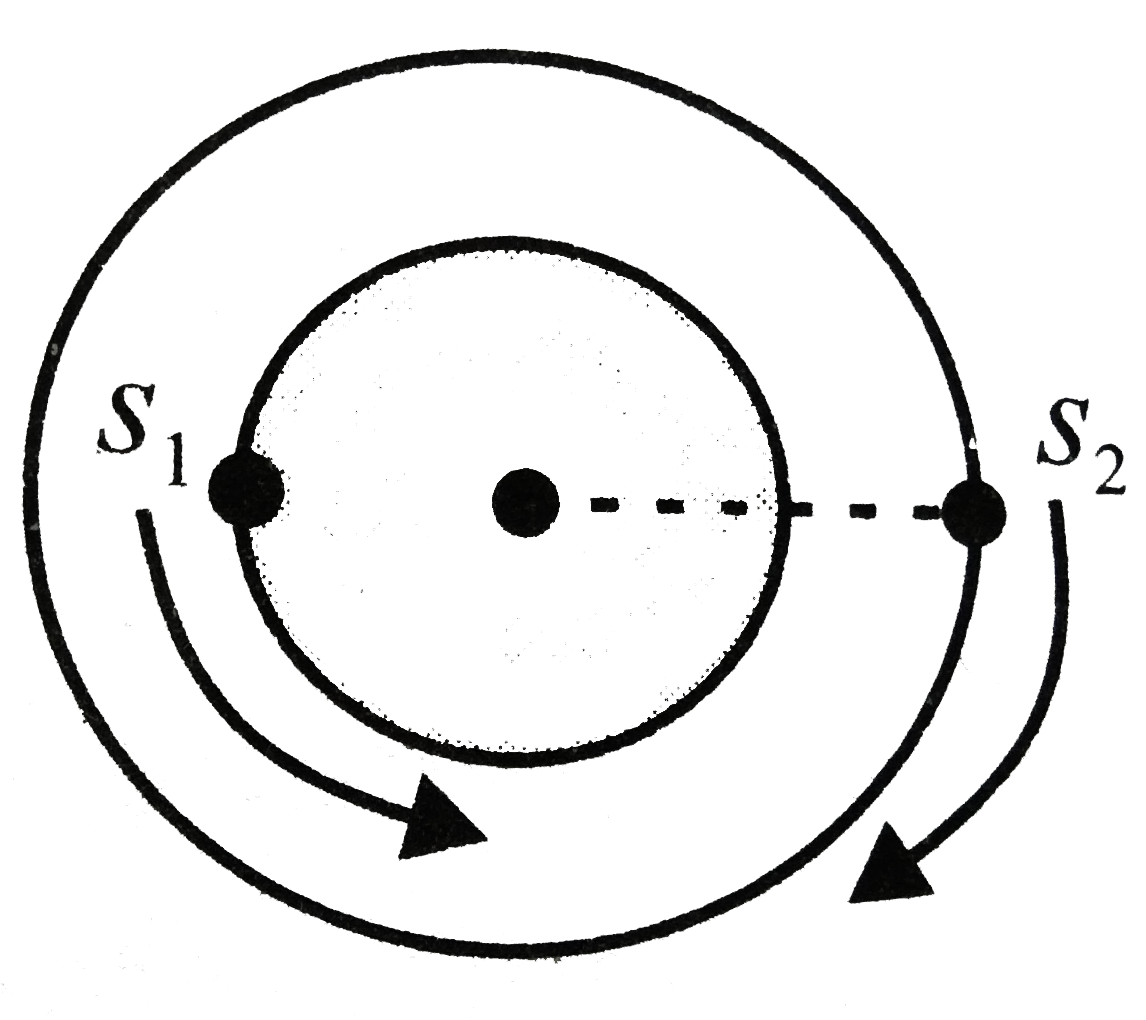If S1 is surface satellite and S2 is geostationary satellite, with time periods T1 and T2, orbital velocities V1 and V2,
T1>T2,V1>V2
T1>T2,V1<V2
T1<T2,V1<V2
T1<T2,V1>V2
The correct Answer is:D
Step by step video, text & image solution for If S_1 is surface satellite and S_2 is geostationary satellite, with time periods T_1 and T_2, orbital velocities V_1 and V_2, by Physics experts to help you in doubts & scoring excellent marks in Class 11 exams.
Topper's Solved these Questions
- BOOK - NARAYNACHAPTER - GRAVITATIONEXERCISE - LEVEL I(C.W.)51videos
GRAVITATION
- BOOK - NARAYNACHAPTER - GRAVITATIONEXERCISE - LEVEL II (C.W.)38videos
GRAVITATION
- BOOK - NARAYNACHAPTER - GRAVITATIONEXERCISE - EXERCISE -IV40videos
GRAVITATION
- BOOK - NARAYNACHAPTER - FRICTIONEXERCISE - Passage type of questions I6videos
FRICTION
- BOOK - NARAYNACHAPTER - KINETIC THEORY OF GASESEXERCISE - LEVEL-III(C.W)52videos
KINETIC THEORY OF GASES
Similar Questions
Derive expression for the orbital velocity of a satellite and its time period. What is a geostationary satellite. Obtain the expression for the height of the geostationary satellite.
View SolutionRadius of orbit of a satellite is R and T is time period. Find T' when orbit radius increase to 9R
View Solution
Knowledge Check
- Question 1 - Select One
Statement I: If time period of a satellite revolving in circular orbit in equatorial plane is 24h, then it must be a, geostationary satellite.
Statement II: Time period of a geostationary satellite is 24h.AStatement I is True, Statement II is True: Statement II is a correct explanation for Statement I.BStatement I is True, Statement II is True: Statement II is Not a correct explanation for Statement I.CStatement I is True, Statement II is False.DStatement I is False, Statement II is True. - Question 2 - Select One or More
Two satellites S1 and S2 are revolving around the earth in coplanar concentric orbits in the opposite sense. At t=0, the position of satellites are shown in the diagram. The periods of S1 and S2 are 4h and 24h, respectively. The radius of orbit of S1 is 1.28×104km. For this situation, mark the correct statement (s).
 AThe angular velocity of S2 as observed by S1 at t=12h is 0.468πrads−1BThe two satellites are closet to each other for the first tme at t=12h and then after every 24h they are closet to each other.CThe orbital velocity of S1 is 0.64π×104km.DThe velocity of S1 relative to S2 is continuously changing in magnitude and direction both.
AThe angular velocity of S2 as observed by S1 at t=12h is 0.468πrads−1BThe two satellites are closet to each other for the first tme at t=12h and then after every 24h they are closet to each other.CThe orbital velocity of S1 is 0.64π×104km.DThe velocity of S1 relative to S2 is continuously changing in magnitude and direction both. - Question 3 - Select One
Two satellites of masses m1 and m2(m1>m2) are revolving around earth in circular orbits of radii r1 and r2(r1>r2) respectively. Which of the following statements is true regarding their velocities V1 and V2
AV1=V2BV1<V2CV1>V2DV1r1=V2r2
Radius of orbit of a satellite is R and T is time period. Find T' when orbit radius increase to 9R
View SolutionThe orbital velocity of a satellite is given by the expression V=sqrt((GM)/(R + h)), here M is the mass of the Earth, R is the radius of the Earth and 'h' is the height of the satellite from the surface of the Earth. Explain the reasons why the geostationary satellite is not possible to set in orbit around the Earth at two different heights from the surface of the Earth.
View SolutionTime period of a pendulum on earth surface is T1. It is arranged on earth surface at a height R and thus its time period is T2. What is the ratio of T1 and T2?
View SolutionThe orbital velocity of an artifical satellite in a circular orbit just above the earth's surface is V0. For a satellite orbiting at an altitude of half of earth's radius, the orbital velocity is
View SolutionIf Ve is the escape velocity and V0 is orbital velocity of a satellite for orbit close to the earth's surface. Then these are related by
View Solution

